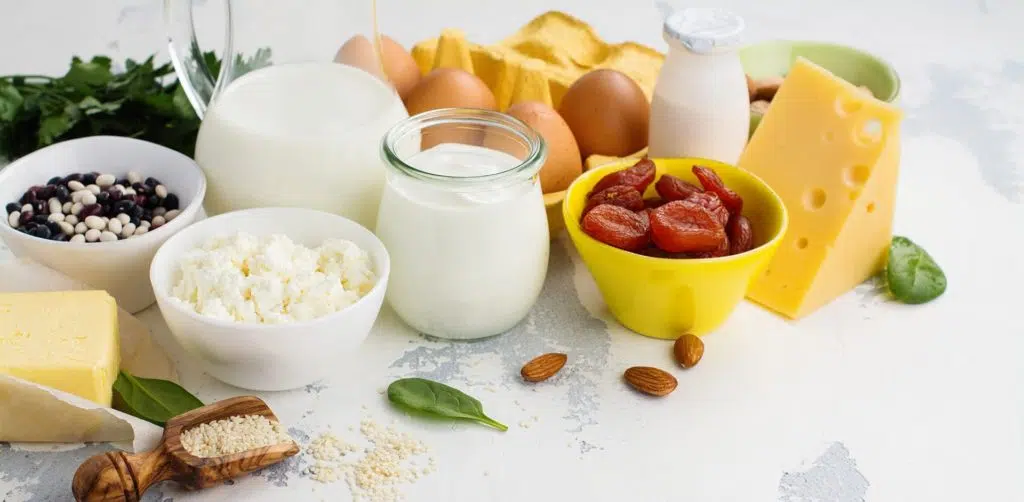If you don’t have the right amount of serotonin in your system, it’s biochemically impossible for you to feel happy.
But how do you give your body the tools it needs to make the right amount of serotonin?
In order to make serotonin, your body needs L-tryptophan – an essential amino acid (one of the building blocks of protein). Tryptophan is a ‘precursor’: a key ingredient for making something else. So tryptophan is a precursor for serotonin: without it, no serotonin will be produced. But the body can’t make its own tryptophan, so we have to get it from foods that contain it.
Logically, then, with a decrease in dietary tryptophan you’d expect to see lowered levels of serotonin and increased levels of misery, right? And that’s exactly what’s been shown in the scientific literature: tryptophan depletion decreases serotonin levels in the brain, which in turn can lead to depression and other problems.
Now let’s try it the other way around – when we increase tryptophan, do we see more serotonin and more gut relief? Yes, we do. For example, researchers have found that in mice suffering from intestinal inflammation, increasing the amount of tryptophan in their diet provided relief. The mixture of bacteria in the gut returned to normal, the inflammation died down, and subjects became less susceptible to new attacks.
The connection here, again, is your gut bugs! Studies show that the food we eat can directly alter the mix of bacteria inside the gut, and so influence our health and brain activity. And more good news – there’s hardly any risk of side effects from increasing our intake of an essential amino acid that’s found in our normal diet, like tryptophan….provided we’re smart and careful about it.
So, here’s a question for you: which readily available medical food contains high levels of tryptophan, as well as offering many other nutritive benefits, and no down sides? Answer: kefir.
Aside from being the most powerful probiotic available to us today, kefir also contains tryptophan – in a quick, safe, natural format that will never harm you, that will boost your immune system, ease your gut, lift your mood, raise your energy levels and make you feel better, fast.
What other foods contain tryptophan? In a nutshell, tryptophan foods are PROTEIN foods: nuts, eggs, seeds, beans, fish, chicken, turkey, lamb, beef, pork, yogurt, cheese. Chocolate also contains tryptophan (but before you get all crazy, it’s found only in dark chocolate, with 70 per cent cocoa solids or higher).
Try to include more of the following tryptophan-rich foods in your diet:
- Free-range eggs (especially the whites)
- Spirulina
- Wild-caught fish, such as cod and salmon, rather than farmed fish
- Pasture-raised poultry
- Grass-fed beef or lamb
- Goat’s milk, goat’s yogurt, goat’s cheese
- Sesame seeds, cashew nuts and walnuts
- 100 per cent wholegrain oats, or quinoa
- Soaked or sprouted legumes, including beans, chickpeas and peas
- New or sweet potatoes
- Bananas
The following foods contain less tryptophan than those above, but are still good sources for those following a vegan or vegetarian diet.
- Soya (soy): soya beans/soybeans are an excellent source of protein; in fact, they are the only vegetable with a complete protein. However, I recommend that you choose only organic fermented soya – the type that’s been used in many Asian cultures for thousands of years. Think nattō, miso, tempeh, and organic, fermented, traditionally made soy sauce.
It’s best to avoid unfermented soya products, such as fresh soya beans, dried soya beans, soya nuts, soya sprouts, soya flour, soya milk, tofu, and the soya protein found in most protein powders. - Pumpkin
- Cauliflower
- Cucumber
- Mushrooms
- Leafy green vegetables














